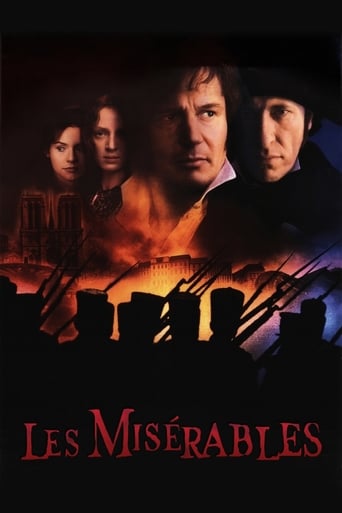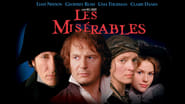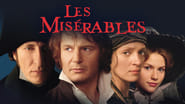Elewis1195
I feel neither love nor hate for this version. It was solid, moved at a steady pace, and a respectable amount of tension for a story that we all know how it ends, and was well acted. I missed the heart of the Frederick March version. Liam Neison was, by his own admission, without feeling, and the ending, well, I won't spoil the ending, but I thought it was the weakest point in the film.Overall not a bad revision but not great either.
eragonbookfan
Forget the book. As far as STORY goes, Liam Neeson's version takes the cake!1998 version was so much better than the 2012 version. The 2012 version was so pushed and in your face like damn it cry already. If you have good acting and good direction you don't need that extra push because it can happen naturally. And more than 50% of the singing in the 2012 version sucked. They chose certain Broadway actors but some weren't and their singing hurt my ears. And if you are going to do a musical don't talk during some of the most beautiful singing parts that was just dumb on their part. The acting was so much more powerful in the 1998 version and they didn't have to sing what was on their mind for you to understand what they were going through. I love the Broadway/concert version too but out of the film adaptations 1998 version is far better than the 2012. Oh and the "boy who gets shot" in the story, it really shocked me in the original when the boy got shot by the troops; I gasped, totally saddened. But the boy in the 2012 adaptation... oh my HECK was he annoying - all his singing & mannerisms were just undeniable irritating! Instead I was like "Thank You!" when he was shot.But I talk in full detail about the films compared in this video here: https://www.youtube.com/watch?v=8NiJT9mQzokThe 1998 version is the best! Watch it and enjoy it!8/10PS: And the ending made absolutely NO friggin' sense whatsoever! I thought this "Free France Heaven" where everyone who died is a live was just laugh-out-loud ridiculous!
bashfulbadger
Les Misérables. I guess it would be clichéd to say that that's exactly what we were after sitting through this turgid hammy mess of a movie.Why are French characters being played by American, Australian and Irish actors all talking in rather poor English accents? If you're going to go to the bother of putting on an accent, why not make it a French one? It's one of the mysteries of Les Mis. It's like they've all been badly dubbed. Reminded me of one of those French kids' shows like Belle and Sebastian and The Flashing Blade that used to be on TV on Saturday mornings. Except as a kid watching those I didn't understand the concept of dubbing so just thought these were people whose mouth movements didn't match what they said for some reason. Actually perhaps that's the very effect they were going for with the film. Hmm, interesting choice.And the script reads as though it's been badly translated; the actors seem to have been directed to overact, perhaps with the instruction 'Act as if you are hysterical French people' – see Uma Thurman's ultimate sickbed scene. I found myself unable to care about any of the characters or get particularly involved in their stories, all in all making this an absolutely abysmal version of the Hugo classic.
MisterWhiplash
No, it doesn't have singing. What Billie August's Les Miserables does have, about the decades long 'chase' between ex-convict Jean Valjean and super-cop Javert,is really strong acting across the board, and what one might call 'handsomely mounted' production style, so it can be gritty, but it almost has the feel of a film from the 40's or 50's, only a little more modern. What I mean to say is I respect this on its own level, not quite like the 2012 film, though they each have their own merits and faults. But especially here, I loved Rush as Javert, a man who is so beholden to the ideal of the law that it buries him, ultimately. I could go on comparing the 2012 and 1998 films, and I want to try to avert it, except to say that I just preferred the story here, how it was told simply, no frills (and no romantic-love triangle just plain romantic interest between Marius and Cosette, the latter being more of a character than in the musical far as I could tell). For people like Valjean and Fantine, they each work their own ways in musical/dramatic film, so on that point it's not totally fair to compare. But I love Neeson as Valjean, and I love Thurman (albeit without a Dream to Dream) as Fatine. And I was blown away by the ending, with the closure coming for both characters within the same locale. While the film may ultimately be TOO handsomely mounted in a way, or maybe the music is not super imaginative here, the story shone through here, and I could see the actors doing so much, under August's direction (and this is a guy who's done Ingmar Bergman so the man knows his character one-on-one drama), to elevate the melodrama into something potent and, for me, true. When Valjean and Javert have their face-offs, across the board they are convincing, tension-filled, but illuminating the moral dilemmas that both characters come across in the course of events. And there's plenty of subtlety to go around too. So, to recommend it would depend: do you want to see a, yes, condensed adaptation of the big-epic Hugo book, with big Hollywood stars and lots of money poured into sets and extras and squalor and... Oh, that's out now in theaters as well? It's a tough call, and you'll have to come to both modern versions both your own way. For me, I'd be interested to see any version of this compelling tale, but at the end of the day, I go for August's professionally drawn, classically shot but deeply felt direction, because, overall, for the medium of film it works.





